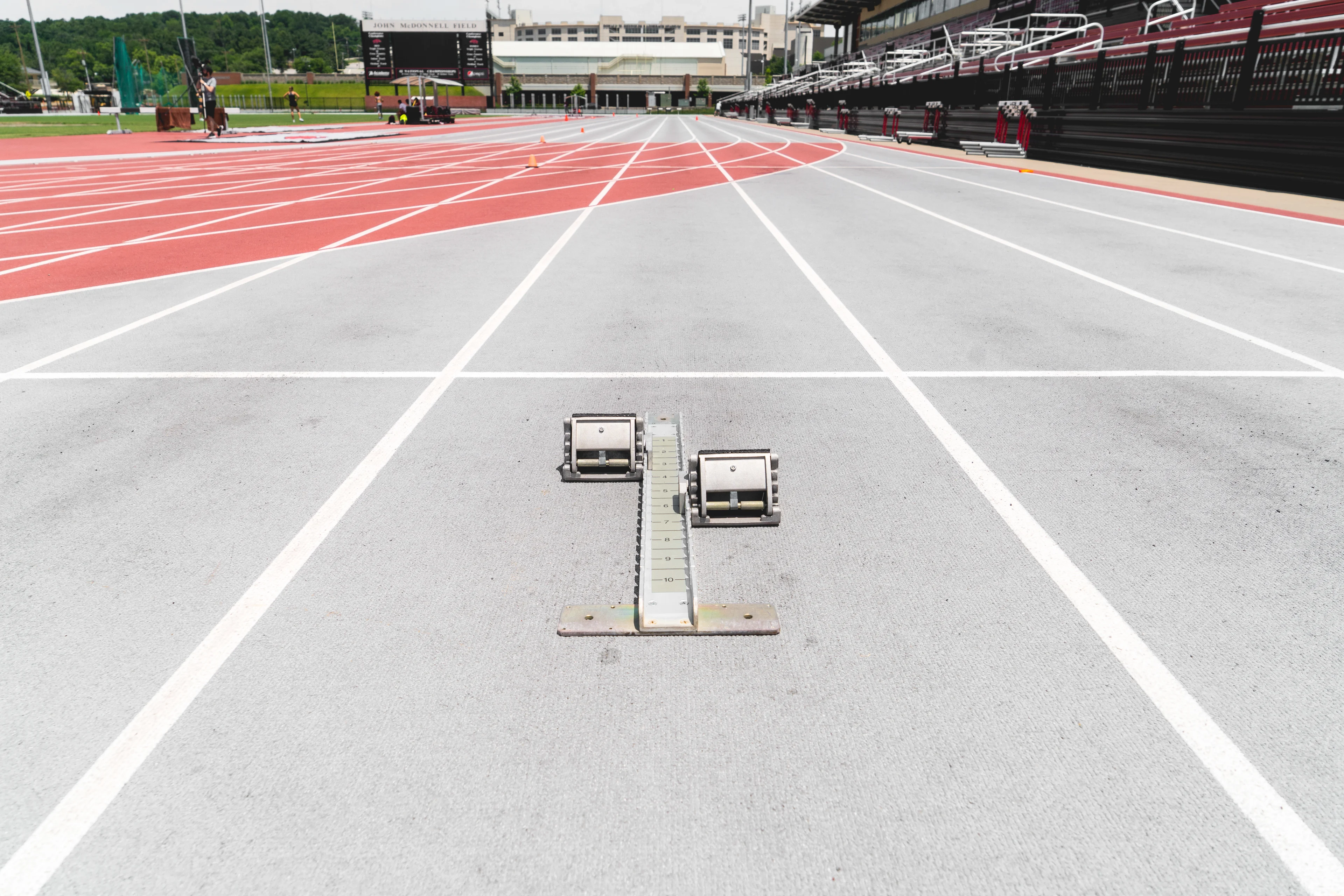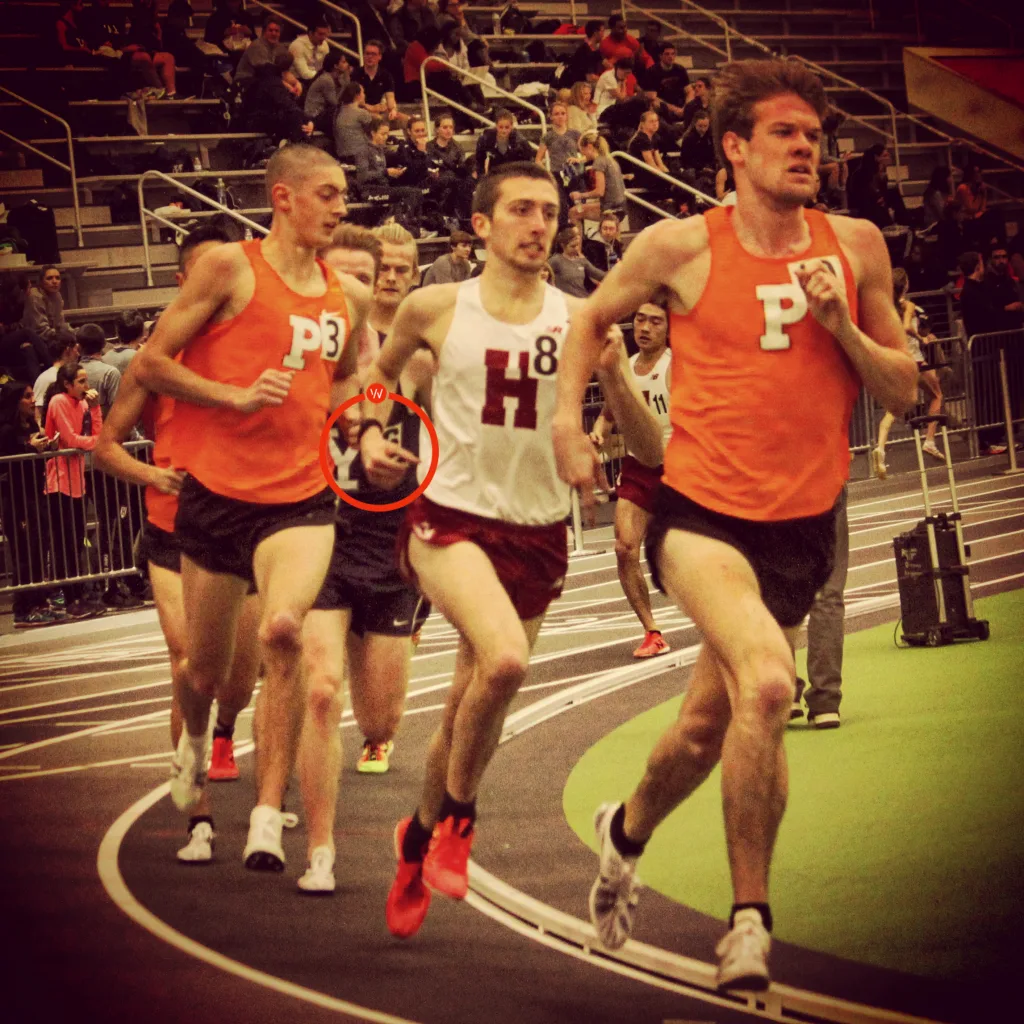Topics
- Article
Sleep, Running, and the Myth of the ‘Two Nights Before’ Rule

For the past eight years, I’ve been obsessed with running. While competing in cross country and track and field for Harvard, I gradually trained harder each year in an effort to compete with the best in the NCAA. In high school, I ran an average of 40-50 miles per week, but as I progressed through my first three years of college, I began running 80-90 miles a week and started adding more stretching, weight training, and core work to my routines. Training became a long grind, especially while balancing schoolwork. The summer before my senior year, I increased my mileage to 95 miles a week to get ready for my last cross country season. Before going back to campus, I learned that my team was going to be among the first to use WHOOP.

I then had an idea: since WHOOP collects data on sleep and recovery, I wondered if there would be any noticeable trends between sleep and race performance. In distance running, everyone always says not to worry if you don’t sleep the night before a race; your sleep two nights before is the most important. While it’s logical to think this way, the importance of “sleep two nights before” has never actually been shown in scientific research to be anything more than a myth; so I reached out to WHOOP, and for the next 9 months we partnered on a research project to answer this question.
At the end of the cross country season, I compiled the season’s worth of WHOOP recovery data from myself and my teammates and noticed some exciting trends: As the myth suggested, sleep the night before a race didn’t strongly correlate with performance, but getting more sleep two nights before a race did statistically significantly correlate with performance. I noticed that an additional 30 minutes of sleep was correlated with about a 7-second improvement performance over an 8K race. The results made total sense to me: if you are nervous and don’t sleep well the night before a big race, but you do sleep well leading up to the race, you can power through the single night of sleep loss and still have a strong performance. However, if you also don’t sleep well two nights before, there is too much sleep debt to simply “power through,” and your body will not be sufficiently recovered to race well.
The WHOOP Effect
From my experience as an athlete, I’ve always had an intuitive understanding of the basics of recovery. It’s pretty simple – getting enough sleep and rest is important so your body can absorb the training needed to compete at the highest level. This is especially essential in distance running since you have to come close to overtraining in order to get faster. The challenge all runners face is finding the right balance between training hard and letting their bodies recover enough to avoid injury and illness. The challenge involved in getting this balance right is what made me immediately interested when I first heard about WHOOP, as WHOOP quantifies how ready the body is to train hard.
Before using WHOOP, I would only spend 8 hours in bed every night. WHOOP helped me realize that 8 hours in bed doesn’t equal 8 hours of sleep. In order to get the 8-10 hours of sleep I needed, I had to spend more time in bed. During the cross country and track season of my senior year, I lengthened my sleep by going to bed earlier and getting up later. I also changed my habits to improve my quality of sleep. After I started using WHOOP, I noticed that I would fall asleep quicker and sleep better if I had less screen time before bed. I started to set aside time right before bed where I would read instead of using my computer for homework or go on my phone and noticed that my sleep quality improved. WHOOP was easy to use and kept me honest about how my behavior was impacting my sleep, and therefore my training and racing.
During my first three years of college running, I had several setbacks with injuries and had inconsistent race results. During my senior year, I was able to stay healthy, train more, and took 26 seconds off my 10K personal best. Getting more sleep definitely played a role in my improvement, and WHOOP helped me be more accountable about getting the sleep I needed.
Make sure to check out @whoop on Instagram, Twitter and Facebook.